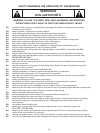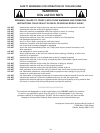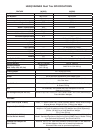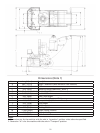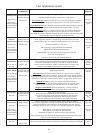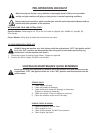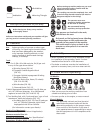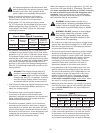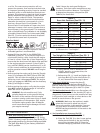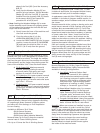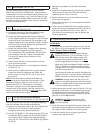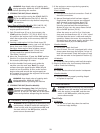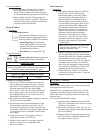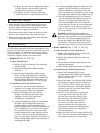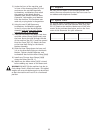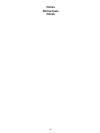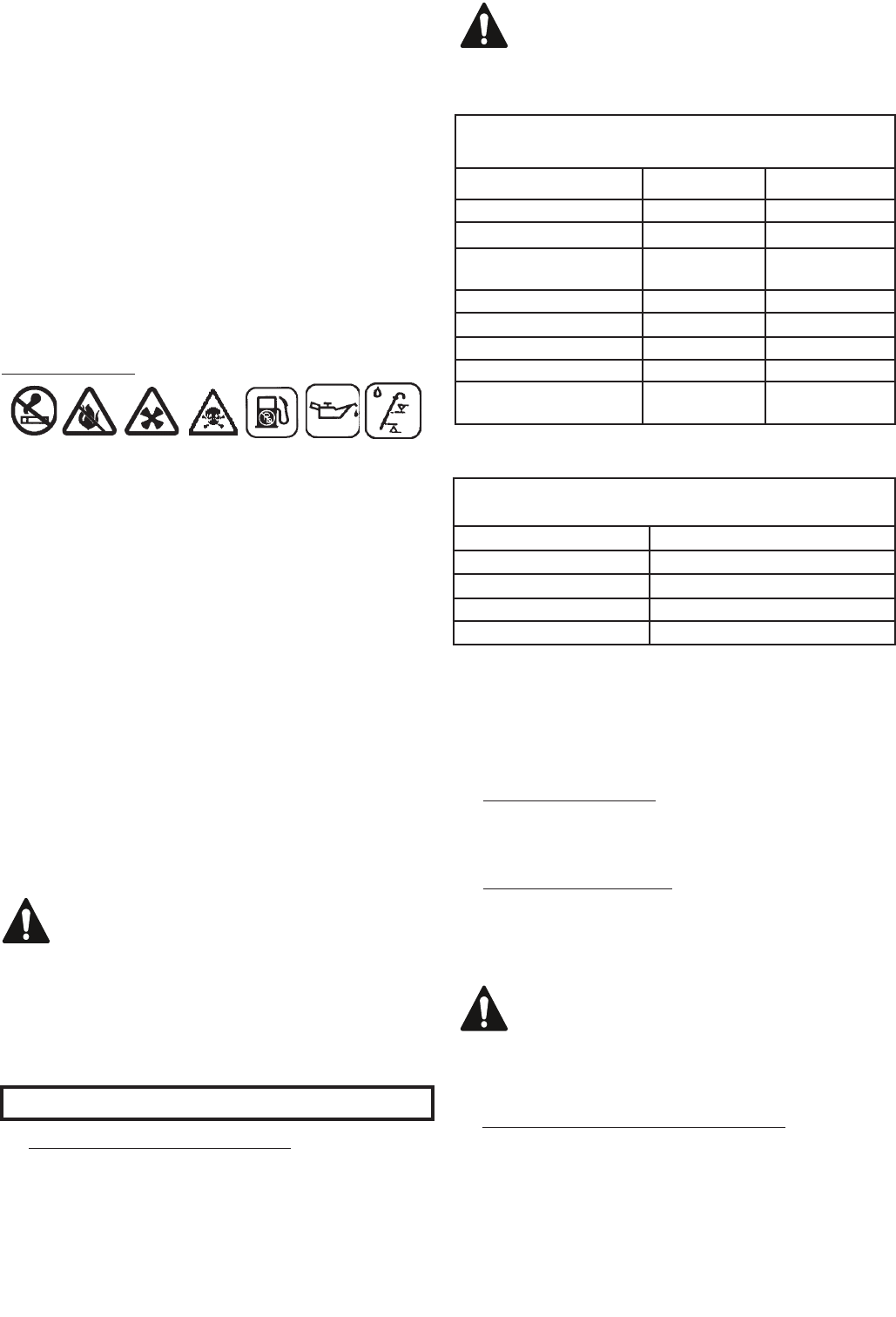
26
or a fire. The overcurrent protection will not
protect the operator from an electrical shock due
to improper grounding practice, frayed or cracked
extension cords, or other defective electrical com-
ponents. This exposure to electrical shock increases
greatly whenever the equipment is used around
water or other conductive fluids. The operator
will be provided with electrical shock protection
whenever the machine is connected to a circuit
that has a Ground Fault Circuit Breaker. The
Ground Fault Circuit Breaker will open the circuit
whenever it senses a fault current, greater than a
few milliamps, in the ground path. If a receptacle
with a Ground Fault Circuit Breaker is not available,
a Portable Ground Fault Circuit Interrupter [MM]
[See FIG. 7] can be used at the branch receptacle
to provide the same level of protection.
Gasoline Model:
• Engine Fuel: Check the engine operation manual.
Unleaded gasoline is recommended.
• Engine Oil: Put the AXLE in the OPERATION
POSITION [F] [See FIG. 11] so that the engine is in
a horizontal position, then, check that the engine
oil level is correct. Check the oil level frequently to
ensure that the level never falls below that specified
in the engine operation manual. If the oil level is
low, add SAE 10W30, service classification SF or SG
oil (for normal conditions) as recommended in the
engine operation manual. DO NOT overfill engine
with oil!
• Before starting the engine verify that the Throttle
Lever [L] is between the START [N] and STOP [M]
position. This will allow the engine to be started
while the clutch is disengaged. NOTE: The engine
clutch will engage at 1800 RPM, and the Accessory
Disks [P] will begin to rotate.
• Before starting the engine, verify that the engine
does NOT exceed 20 degrees angle of inclination
when the unit is in operation.
WARNING: Run the machine only if the
grinding heads are on the ground. Raising
the front of the machine with the engine
or motor running could cause injury or death
to by-standers or the operator. Also, engine
inclination angles greater than 20 degrees
could cause severe engine damage and void
your engine warranty!
WARNING: Make sure the machine is stable
when the front end is raised into the air!
Secure the machine in this position if you are
not sure about its stability. Secure machine
BEFORE starting attachment of the tools to the
accessory disks!
4. Tool Installation
1) Rear Axle Position (See FIG. 11): Make sure
the Axle is in the Transport Position [E]. Using
TABLE 3 (below) install the Axle Stop Bolts [G] in
the proper position for the tool being mounted.
The Axle Stop Bolts [G] are factory installed in
the F2 position.
Table 3 shows the tools specified by our
company. Tools from other manufactures may
fit onto this machine. Measure “Tool Height”
to determine the proper axle position (See
TABLE 4) for these tools.
TABLE 3
Rear Axle Positions (See FIG. 11)
Tool Tool Height Axle Position
Grinding Stones 2.0” (51 mm) F2
Tungsten Carbide Block 2.1” (53 mm) F2
Diamond Segment
Block
2.1” (53 mm) F2
Star wheels 2.25” (57 mm) F2
Beam Cutter Wheels 2.25” (57 mm) F2
TC Wheels 2.15” (54 mm) F2
Diamond Disks 2” (51 mm) F2 or E2
Scrubbing Pad
(with Adapter)
1.7” (43.2 mm) F3
If the tool to be installed is not listed in TABLE 3:
a) Measure the “Tool Height”.
TABLE 4
Tool Height for Axle Positions (See FIG. 1)
Axle Position Minimum Tool Height
F1 2.44” (62 mm)
F2 2.00” (50.8 mm)
F3 1.69” (42.9 mm)
F4 1.00” (25.4 mm)
b) Using TABLE 4, find a “Minimum Tool
Height” equal to, or greater than, the
measured tool height.
c) Referencing FIG. 11, install and tighten the
Axle Stop Bolts [G] in the Axle Position (F1,
F2, etc.) determined from step b) above.
2) Raise Front Shield (A): Loosen the three (3)
Capscrews [B] that hold the Front Shield [A] in
position. Raise the Front Shield to its upper position,
then tighten the Capscrews [B] to hold it in place.
3) Tilt Machine Backwards: When on a flat surface, tilt
the machine backward until the Handles [FF] rest on
the ground. If you are not sure the machine will stay
in this position, add a weight or other device to the
handle to secure them to the ground.
4) Tool Installation on Accessory Disk [P]:
See FIG. 14, FIG. 15, FIG. 16, FIG. 26, FIG. 27
a) Place the
Tool [GG 1] so that it rests against
the back and outside of the tool holding
area of the Accessory Disk [P]. Place the
Wooden Wedge [U] between to the inside



